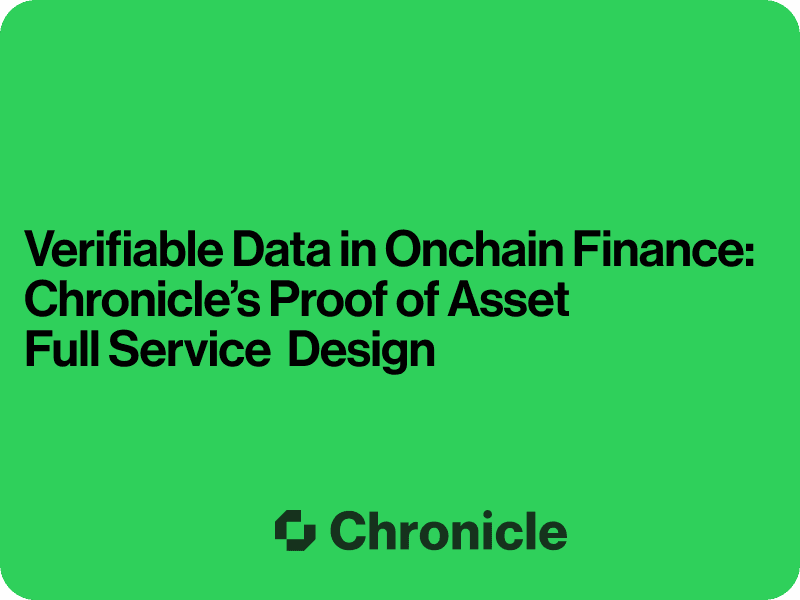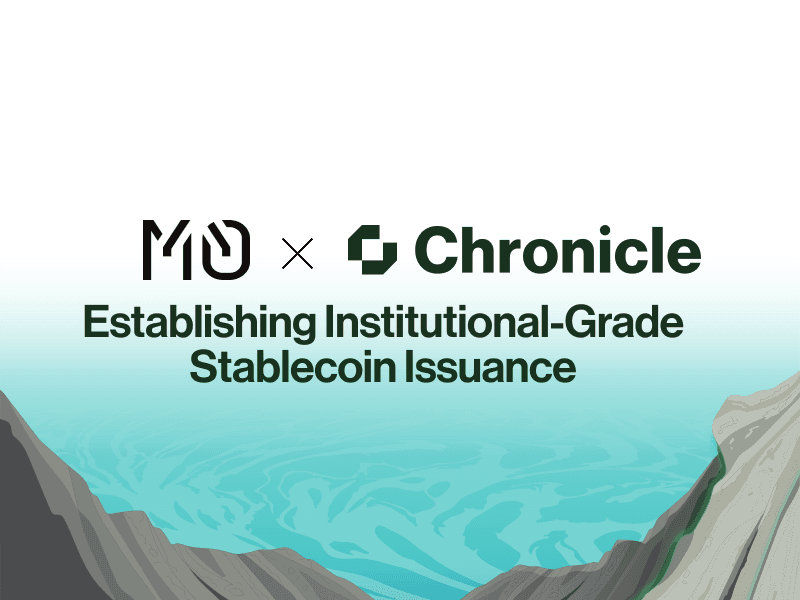DeFi builders often spend substantial time selecting the right chain, designing incentive mechanisms to attract liquidity, and optimizing their protocol’s performance. Yet one critical component is frequently overlooked: the oracle infrastructure powering the application. As long as price feeds appear functional, oracles tend to fade into the background—until something breaks.
In this blog post, we present five essential questions to guide your evaluation of oracle providers and ensure your protocol is built on a solid foundation.
1. Has it handled volatile markets without failure?
Track record matters. When evaluating an oracle, ask how long it has been in production and whether it has reliably secured assets through market turbulence.A proven track record of uptime and resilience during periods of volatility is a strong indicator that the oracle can scale with your protocol and deliver accurate data when it matters most. Reliability isn’t just a feature—it’s a prerequisite for trust in DeFi.
2. What assets—and how much value—depend on it today?
Total Value Secured (TVS) is a key signal of market confidence. It reflects how much capital currently relies on the oracle’s data across deployed applications. A high TVS demonstrates that the oracle has successfully secured a large amount of assets without security issues—a reassuring benchmark for teams and users alike.
3. Are its validators external and diverse—or just internal nodes behind a decentralized label?
Decentralization isn’t just a buzzword—it’s core to Web3’s ethos of trustlessness, transparency, and resilience. While blockchain networks offer strong guarantees of consistency and availability within their ecosystem, the external data sources they rely on do not. APIs, databases, and external websites can be hacked, altered, or even go offline, creating potential vulnerabilities. By using a decentralized network of validators, a Web3 oracle can minimize these risks, ensuring that no single point of failure or manipulation compromises data integrity or availability. Decentralized oracles distribute responsibility across multiple nodes and tap into diverse data sources, making the oracle more robust and secure—a crucial safeguard for protecting funds and maintaining trust in DeFi and other decentralized applications.
4. Is it using Tier-1 data sources?
When evaluating oracle networks, it’s essential to scrutinize the quality and integrity of their data sources. Key questions include: What sources does the oracle network rely on? Does it leverage tier-one, reputable data sources with established credibility, high liquidity, and a proven track record? For oracle networks using onchain data sources, such as DEXs, are there at least 2-3 reliable data sources—ideally with at least two on the same chain—to enable MEV bots to arbitrage and prevent market manipulation?
High-quality data sources are fundamental to minimizing the risk of inaccuracies or exploitation. Oracle networks must prioritize Tier 1 data sources with healthy liquidity that are resistant to manipulation. In contrast, reliance on low-quality or low-liquidity sources can be prone to market manipulation, undermining the security of the system.
5. Can it keep up with your update frequency without draining your budget?
Oracles are inherently gas-intensive. During periods of high network congestion, maintaining fresh data across multiple feeds can quickly become cost-prohibitive. Even on Layer 2s, frequent updates add up.
Some protocols reduce costs by decreasing update frequency—but that tradeoff sacrifices data freshness, and with it, user safety. A better approach is to choose oracles that optimize for both accuracy and efficiency. The ideal solution delivers high-frequency updates while minimizing gas costs—so your protocol can scale without compromise.
Closing Thoughts
Chronicle is uniquely positioned to meet these criteria. As the first oracle live on Ethereum, Chronicle has withstood market volatility since 2017, securing billions in value for major DeFi protocols. Its validator set features diverse, mission-aligned organizations, ensuring integrity at the core. By prioritizing Tier 1 data sources and delivering high-frequency updates efficiently, Chronicle provides the reliability and resilience long-term DeFi teams need.
If you're building for the long haul, your oracle should be, too.








